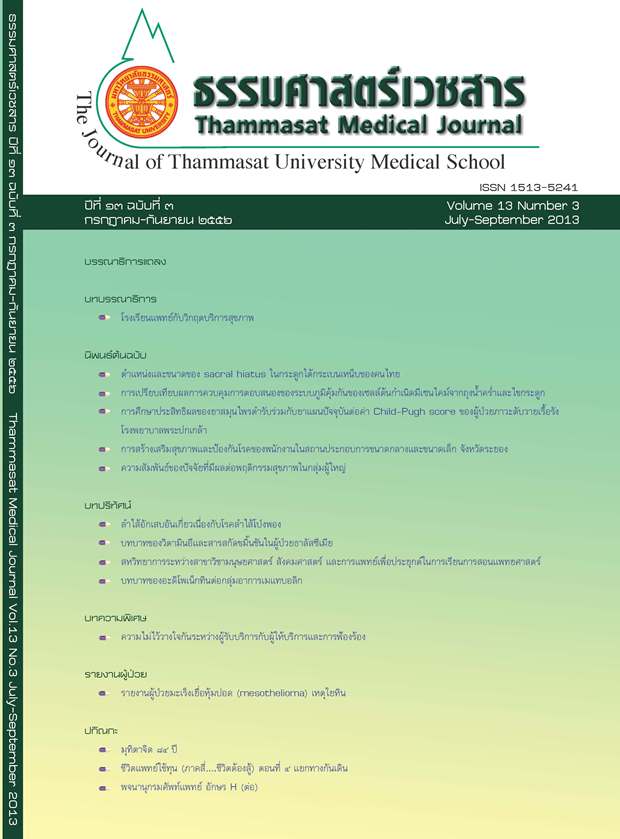Comparison of immunomodulatory effects of amnion derived mesenchymal stem cells with bone marrow derived mesenchymal stem cells
Keywords:
การออกฤทธิ์ควบคุมภูมิคุ้มกัน, เซลล์ต้นกำเนิดชนิดมีเซนไคม์, ไขกระดูก, ถุงน้ำคร่ำ, Immunomodulation, Mesenchymal stem cells, Bone marrow, AmnionAbstract
Introduction: Mesenchymal stem cells (MSCs) are potent sources for cell therapy in regenerative medicine becausethey can be isolated from various tissues, expanded, and induced into multiple lineages. Noteworthy,their immunomodulatory effects maximize the therapeutic effects of stem cells engrafted on host,making them an especially attractive choice. The main source of MSCs for most clinical andpreclinical research is bone marrow. Recently, several tissues, including placenta and umbilicalcord have been suggested as alternative sources of mesenchymal stem cells. However,comparative studies on biological and immunomodulatory effects of amnion derived mesenchymalstem cells (AM-MSCs) and bone marrow derived mesenchymal stem cells (BM-MSCs) are stillpoorly characterized.
Method: Examine and compare immunomodulatory function of AM-MSCs with that of BM-MSCs usingco-culture system with activated T lymphocyte derived from human peripheral blood.
Results: Similar to BM-MSCs, AM-MSCs expressed MSC markers CD73, CD90, and CD105 but did notexpress the hematopoietic markers CD34 and CD45. AM-MSCs were able to differentiate toseveral mesodermallineages including adipocytes and osteoblasts. Interestingly, these cells alsoexhibited comparable immunomodulatory effects when they were co-cultured with activated Tlymphocyte.
Discussion and conclusion: The results of the present study suggest that while both AM-MSCs and BM-MSCs haveimmunomodulatory effects, AM-MSCs may have additional advantage over the BM-MSCs in termsof availability. Therefore, AM-MSCs might be considered a potential source for therapeuticapplications.



